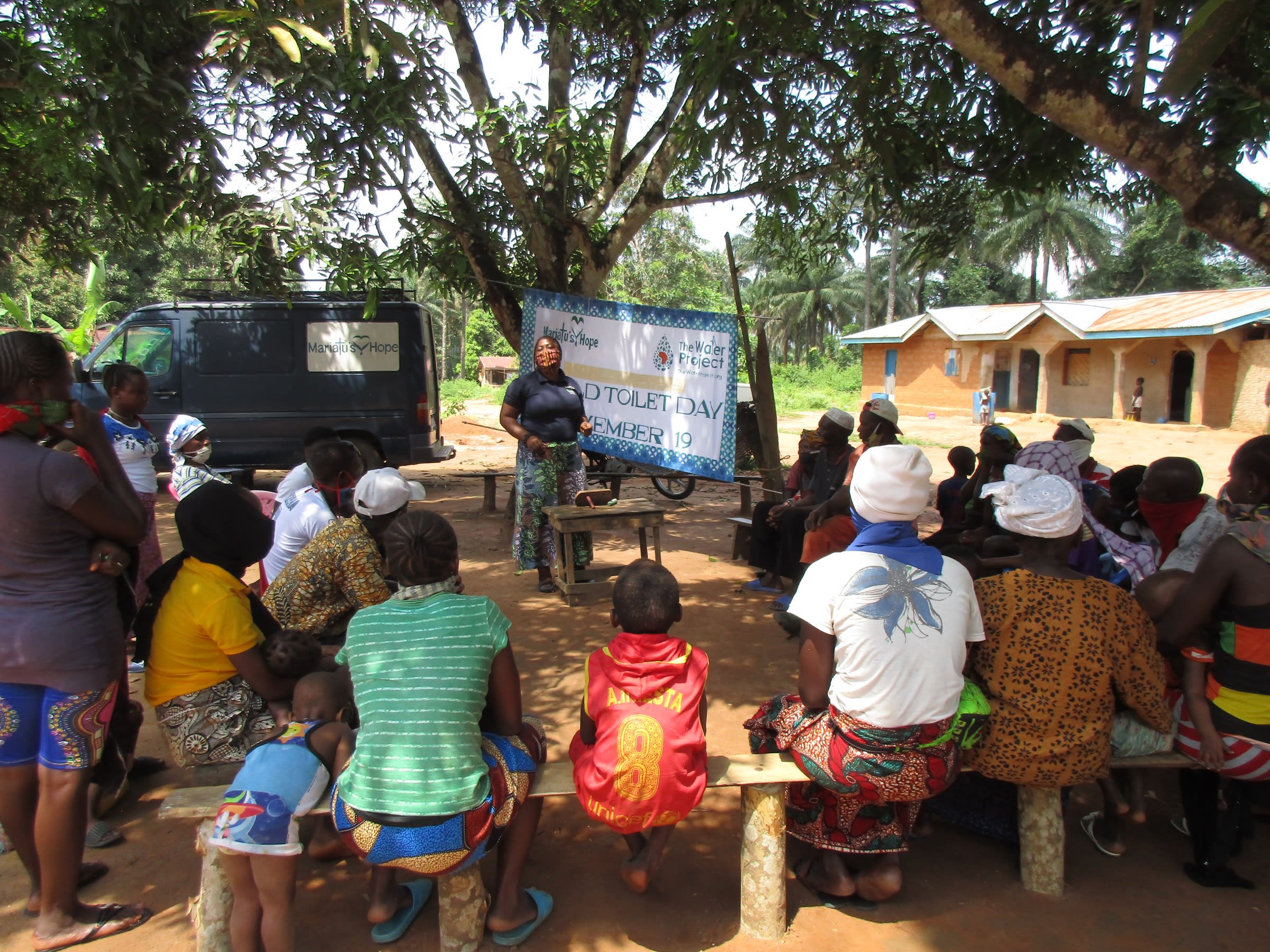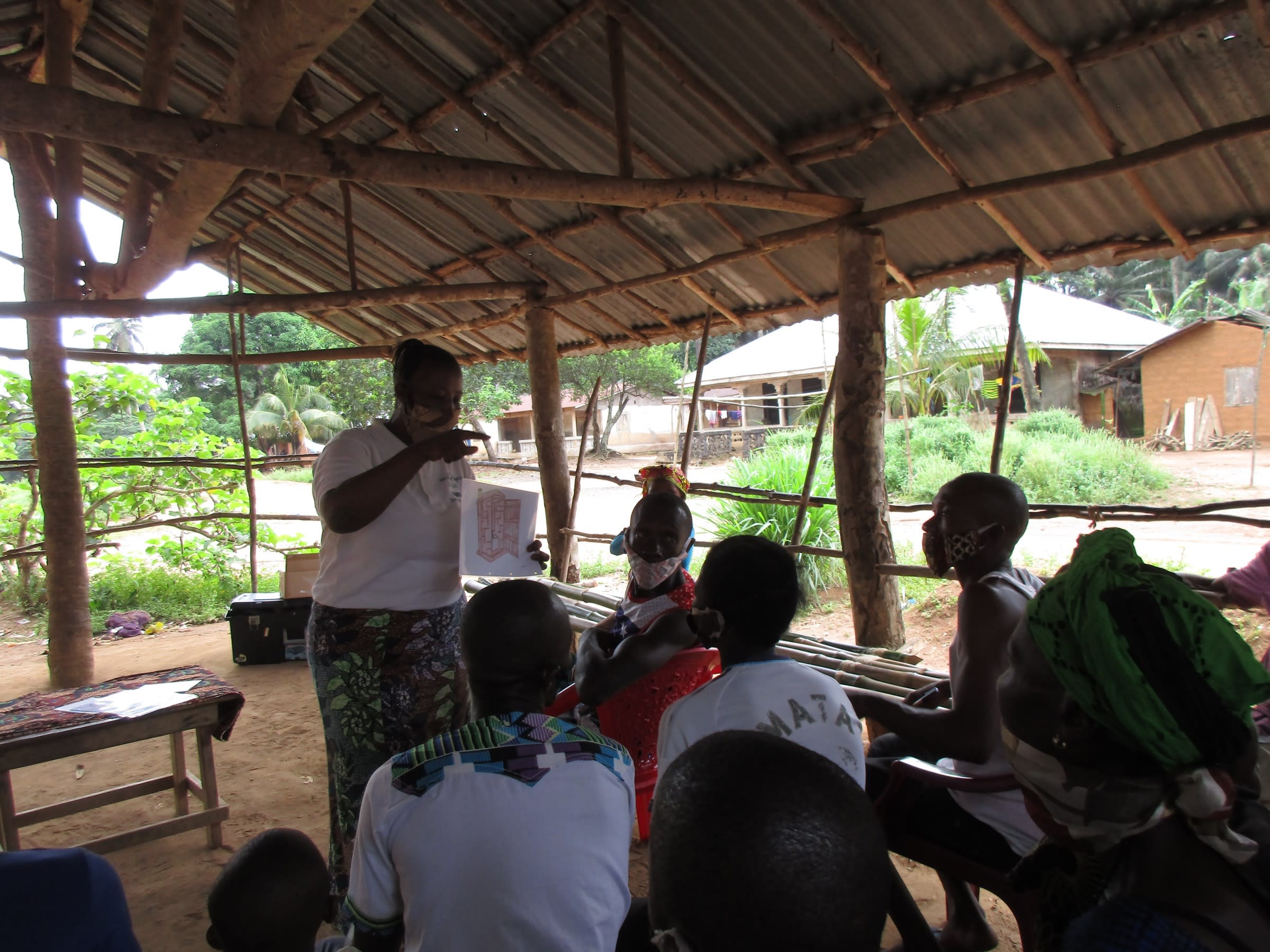The main water point for the 670 people living in Rotain Village collapsed 3 years ago. It is centrally located for this community, but because it does not work, people turn to the nearest swamp every day to get water necessary for cooking, cleaning, washing and drinking.
Junior secondary school student Mabinty feels the pressure of having to balance fetching water and going to school. She said she takes up to 10 trips each morning to the swamp to get enough water for her family. She then has to walk for more than an hour to get to school.
"Most times, I go to school on an empty stomach, and after the long walk, I cannot pay attention to the teachers," she said.
"Not having clean water in the village causes a lot of delays. I don't know how much longer I will be able to do this routine. I am honestly tired. Marrying at this age might be better."
The far distance from the home to the swamp also increases the dropout rate of most children in the village. Having to make repeated trips to the swamp to fetch water and then make way to school is a major contributing factor to the village's illiteracy rate. All of this effort is to collect water that is unsafe for drinking.
The water point is surrounded by dark mud and open to the contamination that leads people to contract waterborne diseases. Cases of dysentery and cholera are common here due to drinking water from this source.
The community well marked for this overhaul needs major work to supply adequate, clean water to the community year-round. The pump will be removed, and a hand auger will be lowered inside and powered by a drill team. This hand auger will allow the team to drill several meters deeper to hit a sufficient water column to ensure the well supplies water throughout all seasons.
As the team drills, casing will be installed, transforming the bottom of this hand-dug well into a borehole. PVC piping will connect this lower system directly to the pump, a construction that we know will also improve the quality of water.
Once this plan is implemented, everyone within the community will have access to safe drinking water in quality and quantity, even through the dry months.
The most common livelihoods in this community are processing palm oil and farming. Rotain means hill or mountain, and it's an apt name for this community located among the hills of Lokomasama. The village is made up of Temne speaking people but nestled between two Susu speaking villages. It creates a strong multicultural community where most homes are built near the town center.
Many homes here do not have latrines. Those that do are often made up of sticks that are tied in a circle. The sticks are tied together with bush rope strong enough to tie anything. Empty rice bags are then used to wrap around the sticks to create a wall. All the latrines we observed lack soap and handwashing stations.
To improve overall hygiene and sanitation in this community, training sessions will be offered for three days in a row.
After our visit, the hygiene and sanitation trainer decided it would be best to teach community members how to build a tippy tap (a hand-washing station built with a jerrycan, string, and sticks). They will use these tippy taps for handwashing demonstrations and will also teach about other tools like dish racks and the importance of properly penning in animals.
This training will also strengthen the water user committee that manages and maintains this well. They enforce proper behavior and report to us whenever they need our help solving a serious problem, like a

 Borehole Well and Hand Pump
Borehole Well and Hand Pump

































